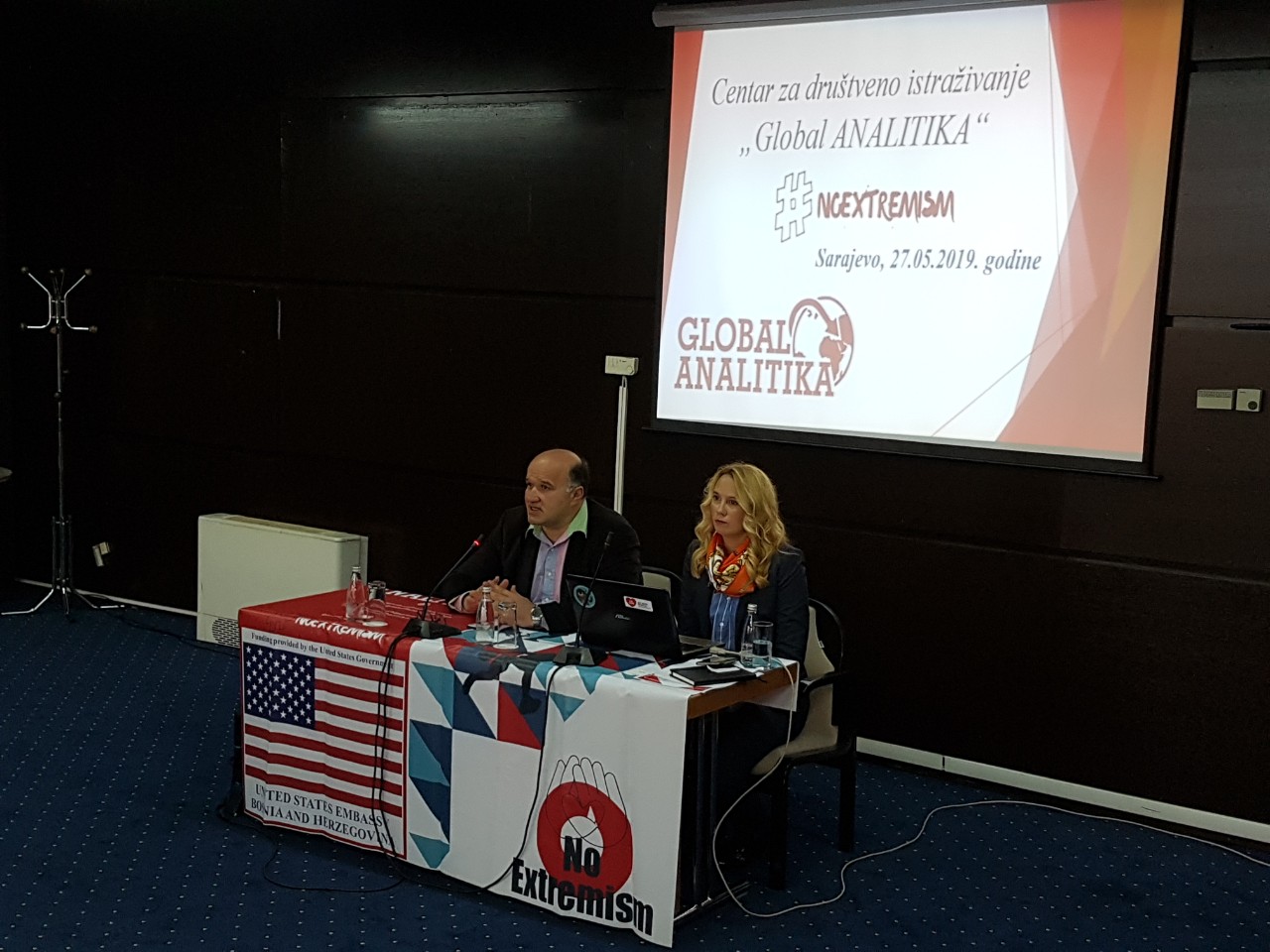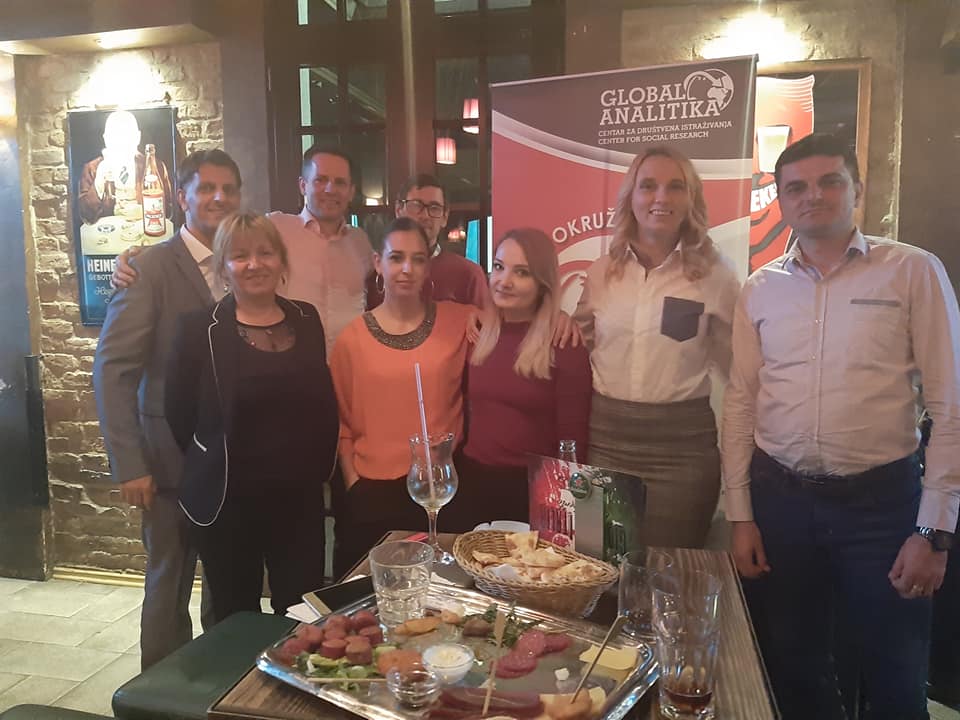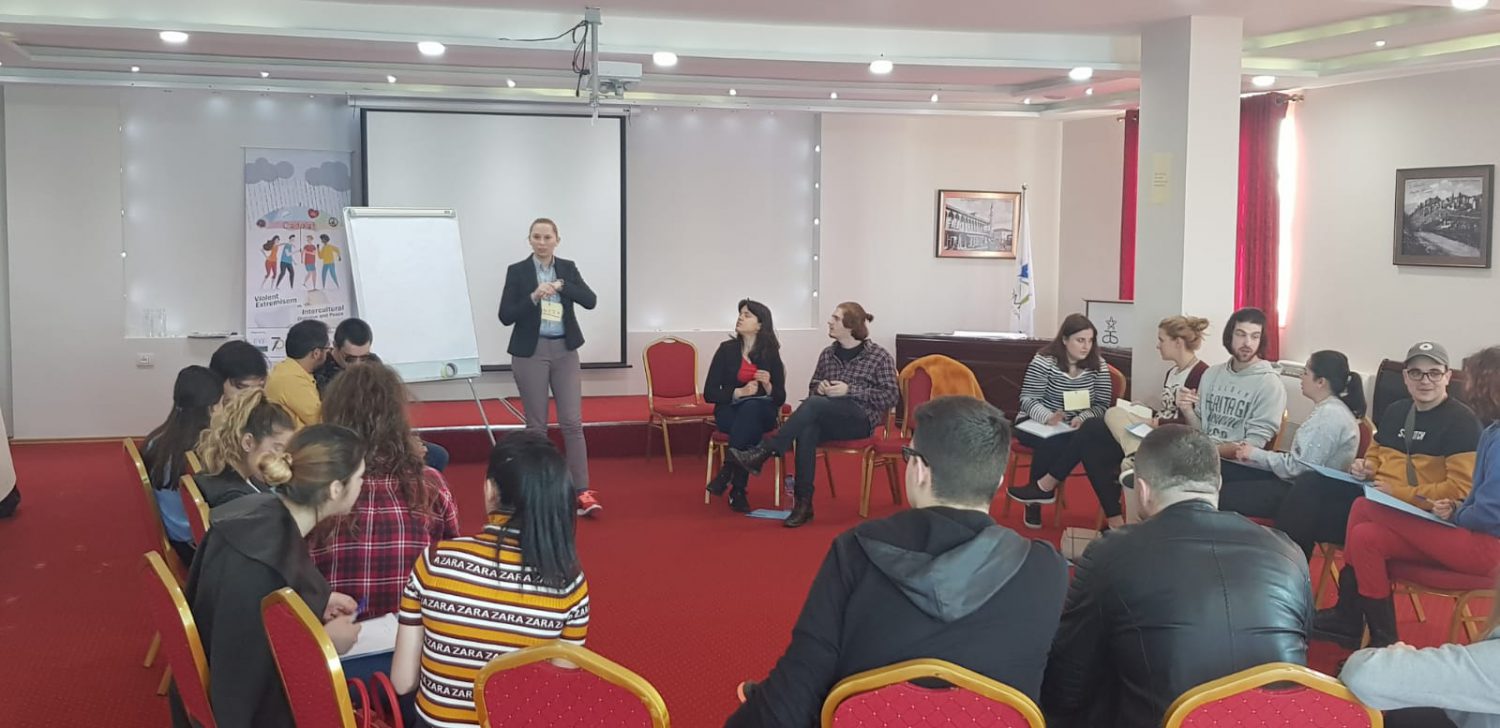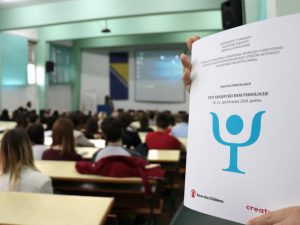Western Balkan region is characterized by the fact that most of the countries were directly or indirectly involved in conflicts and war events, especially during the 90s. Balkans countries are very fertile ground for violent extremism and radicalism due to the intertwined complicated past that was filled with nationalism and radicalism for many years. It is known that the post-conflict areas are susceptible to the influence of various social events and trends, especially those destructive and extreme. Especially when these facts were added to the end of the war and hostilities, which did not lead to a complete harmony in the relations between states and peoples. These factors also took great material and emotional devastation, so Western Balkan countries now belong to the poorest in Europe, unemployment is a significant problem, corruption is the largest in Europe, people live with a sense of injustice due to war narratives of the past – thinking that justice hasn’t been satisfied, and besides this, area of Western Balkan (WB) is well-known for existence of large quantities of illegal weapons. When we consider only these basic social indicators, it is clear why the WB became known for the negative trend of the spread of extremist ideology and the examples of radicalization.
One of the most alarming social phenomena, as well as the greatest security threats in the contemporary world, is violent extremism and radicalism, especially the one leading to terrorism. It is a very complex psycho-social phenomenon, which evolved during social development and evolved into a global security problem. Given the gravity of terrorism-induced consequences, as the most delusional and most dangerous form of extreme behavior, early awareness of the need to act against terrorism at an international level, and the common application of international instruments and measures to prevent and combat this global problem.[1]
Western Balkan region represents countries as post-conflict societies; where communities with still visible traumatic consequences of war and trauma that has been transmitted through three generations. In addition, and because of the current socio-economic situation, young people are often marginalized by poverty, unemployment, and lack of opportunities. Repeated victimization, injustice, discrimination, as well as inequality easily impact the most vulnerable category of society – youth – feeding hatred, frustration and on occasion inciting violence. This makes youth more susceptible to the influence of individuals and groups with extremist beliefs.
Youth from the Western Balkan region is the at the greatest risk to be drawn to the abyss of the extremism since they are not being informed enough about the dangers of the existence of radicalism and the attempts of spreading extremist ideologies.
The results of previously conducted research by Global Analitika from Bosnia and Herzegovina have shown that young people are particularly vulnerable to being drawn into the paths of radicalization, and for this reason it is necessary to use whole-society approach, which understands comprehensive action of all factors in order to prevent violent extremism and radicalism among the most vulnerable, such as young people.
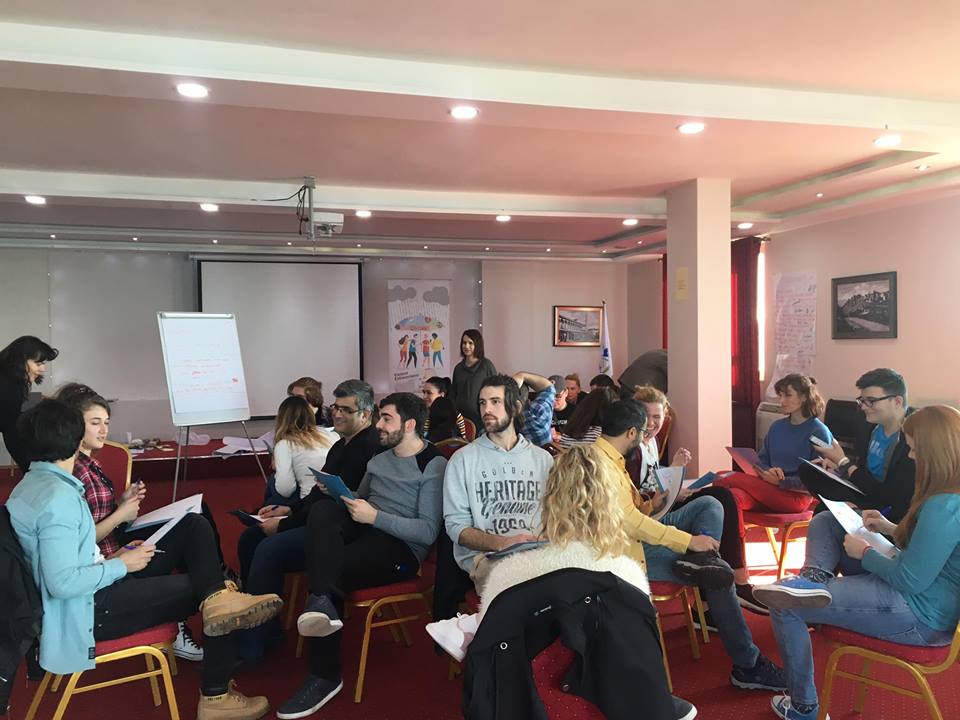
As an adequate response to this negative phenomenon and the role of youth in P/CVE activities, PVN from Albania with 9 partners from 9 countries (Albania, Bosnia and Herzegovina, Montenegro, Northern Macedonia, Serbia, Croatia, Kosovo, Greece, and Turkey) has realized a training course in Durres from 18 to 24th February. This training course is one of the activities within the project “Violent Extremism vs Intercultural dialogue and Peace”, supported by European Youth Foundation, which aims to build capacities of youth workers, activists, young teachers, volunteers and teachers on building peaceful societies by having an active role on preventing violent extremism. The training course as an international capacity building training gathered 27 participants coming from Albania, Bosnia and Herzegovina, Croatia, Greece, Northern Macedonia, Montenegro, Kosovo, Serbia, and Turkey. This selection of countries participating in the training was made for the reason that, in certain periods, these countries had mutual misunderstandings, confrontations and/or conflicts, and therefore the aim was of exchanging opinions of participants and breaking down the barriers.
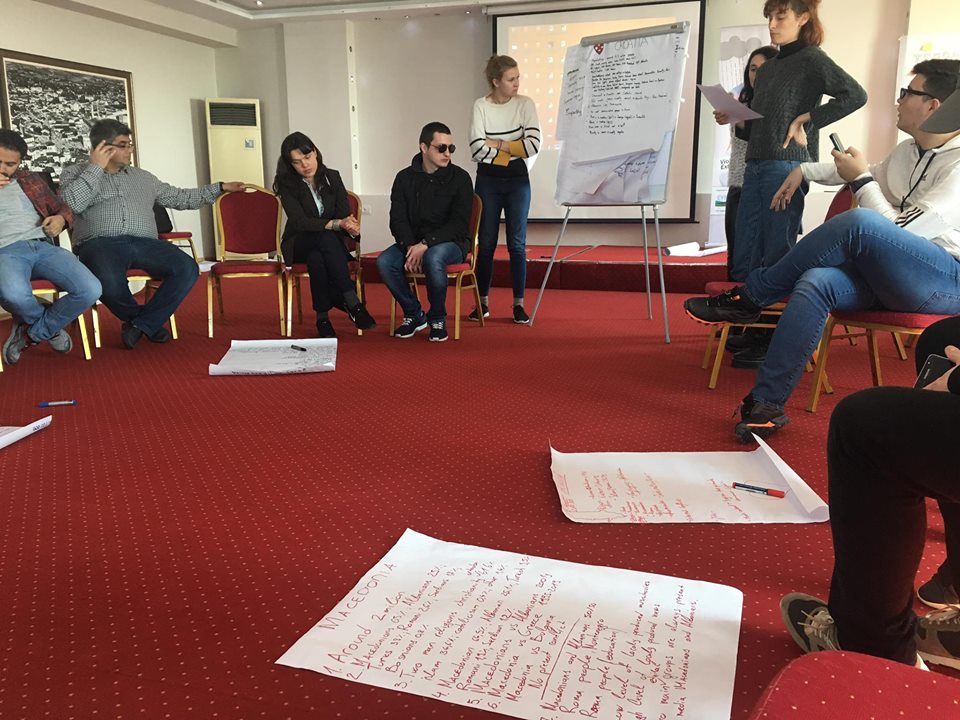
Trainers and facilitators for this training were Safet Mušić, as independent research and expert for security issues, Anesa Agović from Global Analitika, Oltiana Rama from PVN Albania and Migjen Krasniqi from ICSI Kosovo, as youth workers working on the topic of P/CVE. Global Analitika as a leading organization from Bosnia and Herzegovina for the topic of violent extremism and radicalization has been invited to be a partner in the international project in order to provide trainers and facilitators, but also share good practices, knowledge, and experience.
To prevent violent extremism we consider very important the correlation has with different aspects and topics which are an integral part of the project, such as self-awareness, knowing our capacities as youth workers and young people, practicing intercultural learning and dialogue, as well as reducing stereotypes and discrimination, but above everything to help youth workers to strengthen the resilience of youth against these negative phenomenon.
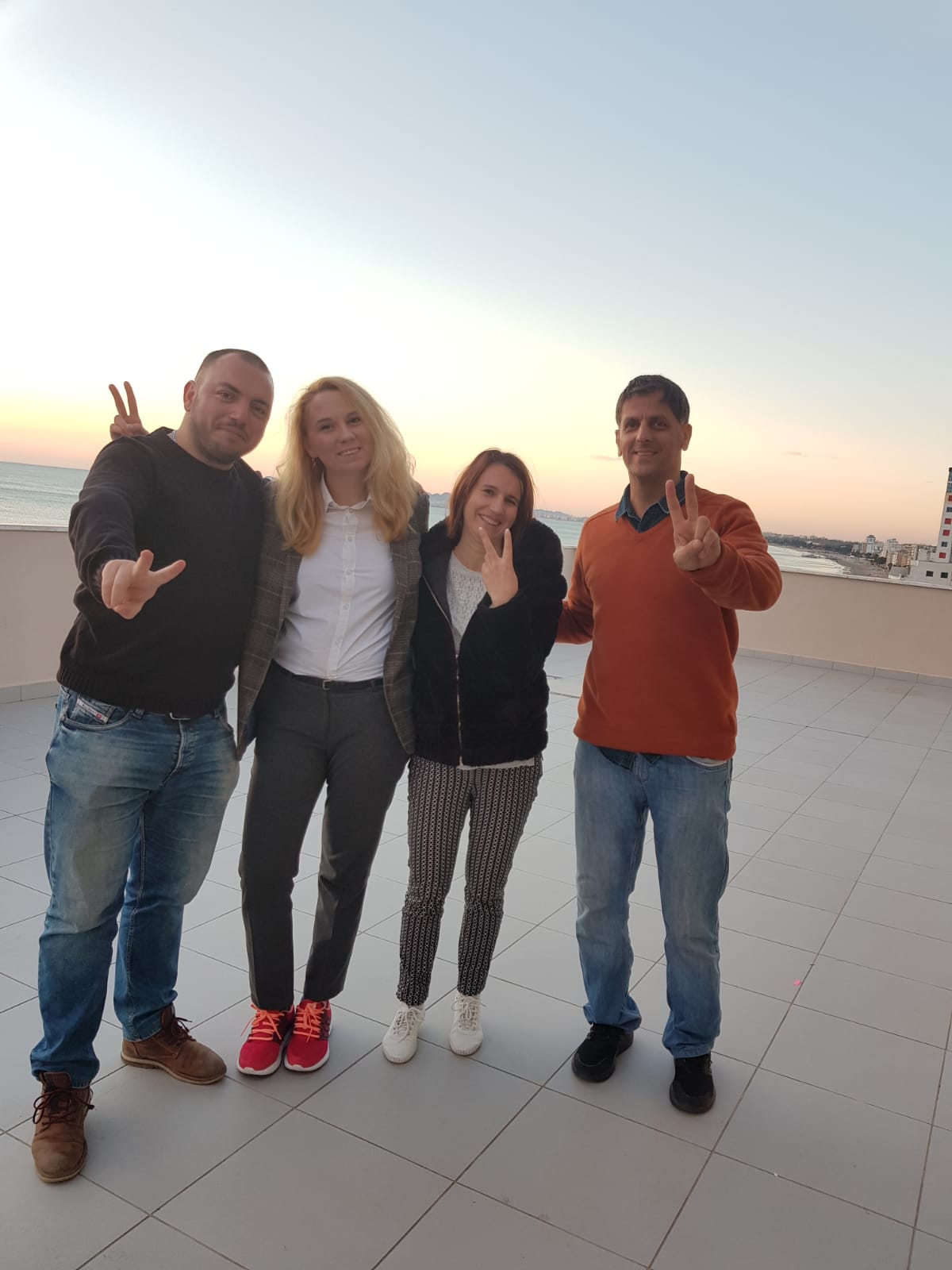
How was the training and how did participants learn new tools and methods for prevention of violent extremism and radicalization, you can check in more details on the Facebook fan page.
It is important to note that this project had a special feature, where we directly and in practice showed how much inclusion of persons with disabilities is crucial, also in preventing negative phenomenon.
The ideas and projects delivered and presented on the last day of the training seemed promising, so we are looking forward to future activities, because we all had a great time and yet again showed how much collaboration, cooperation, and teamwork are important to spread positive messages and promote positive values in order to effectively contribute in prevention of negative phenomenon such as violent extremism, radicalization or hate speech.
Once again, as partners, we thank Ms. Oltiana Rama and PVN Albania for creating such a project, but also thanks to the European Youth Foundation that recognized such project of great importance. Also, special thanks to partners and their representatives that were greatly involved and happy to share their knowledge, experiences and good practices.
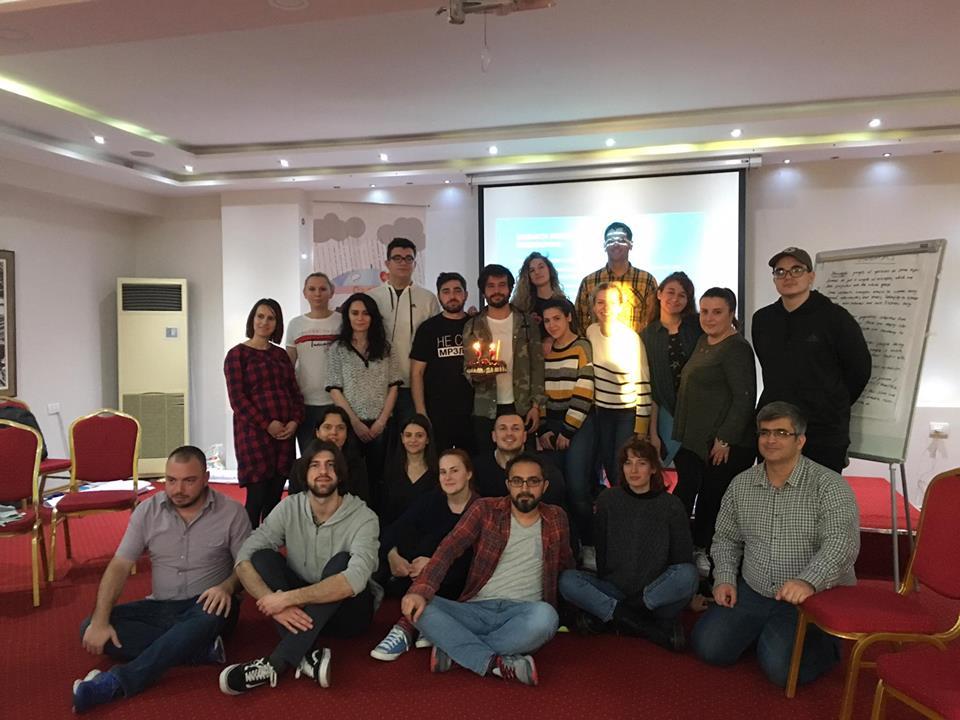
[1] (PDF) Mušić, Safet (2018) The Contribution of The Family in Strengthening Resilience to Extremism. Available from: https://www.researchgate.net/publication/328413359_The_Contribution_of_The_Family_in_Strengthening_Resilience_to_Extremism [accessed Feb 10 2019].




